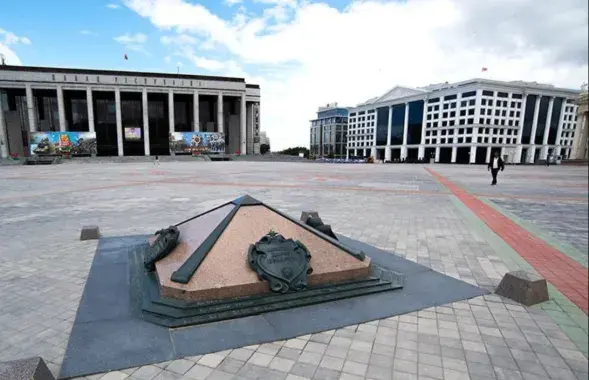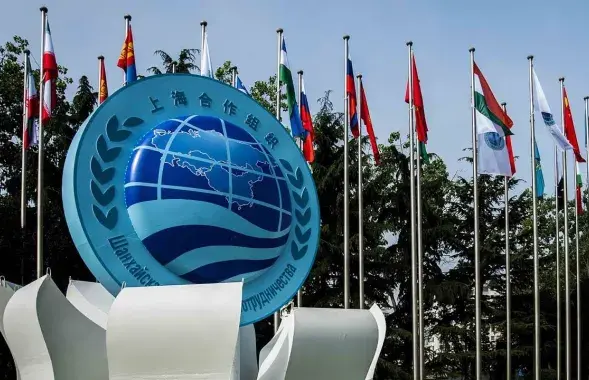Israeli journalists: Why don’t Belarusians want to advertise themselves!?
Israeli reporters became agricultural tourists for a week, experienced Belarusian hospitality and found out why tourists from their country would not organize m
group of Israeli journalists who represented such famous editions as Haaretz Daily Newspaper, The Jerusalem Post and various Internet portals spent a week getting acquainted with agricultural tourism in Belarus.
They gave a press conference in Minsk and said how much they liked the Belarusian landscape and hospitality. They mentioned the dishes they were treated to at “Motyl Cuisine” festival and village home-brew. However, they also pointed at the absence of guide signs in English and bad road service. They also noticed that some Belarusians did not understand why they needed to advertise themselves, take part in tourist projects and so on. The director of the portal IzRus Alexander Goldenstein drew attention to it.
Alexander Goldenstein: “We often felt that people just did not understand why they should take part in some programmes, why they had to explain their way of life. We did not see any guide signs in English and even English-speaking journalists received guide-books and leaflets in Belarusian. Why spoil so much paper? I understand you have a lot of trees but it is still a shame. There was a discord between hospitality, generosity, willing to help and a complete lack of understanding what we were doing there”.
By the way, the deputy Minister of Sport and Tourism Cheslau Shulha said that the number of Israelis who visited out country last year practically equalled the number of Belarusians who visited the promised land.
Cheslau Shulha: “A bit more than 10 thousand Israeli citizens visited Belarus last year. To be precise, there were 10021 tourists.9986 Belarusian tourists visited Israel”.
C.f.: Thrice as many Israeli tourist visited Poland last year. And the number of those who visited Lithuania was 5 times bigger. Cheslau Shulha said that plans of combined tours were being worked out. For example, Israeli tourists heading for Lithuania will be able visit Belarus for a day or two.
An ERB reporter wondered whether it was likely that Israeli tourists could get interested in such tours with the current cost of Belarusian visas. According to the official, the visa does not seem that expensive if you make a one-week visit.
Cheslau Shulha: “Speaking about Israel, their tourists visit us for 7 or 8 days. It is not so expensive, I mean visas. However, if neighbours arrive for a week and a half or a fortnight the visa costs 50-60 dollars or more and even more in the airport. If the visit has not been planned the fact affects their choice to visit Belarus or some other country”.
He said that the Ministry was conducting negotiations with the Ministry of Foreign Affairs in order to lower the cost of visas. He added there was a hope that their opinion would be taken into account.
The Israeli Ambassador to Belarus Eduard Shapiro also hopes so. However, he added that the Ministry of Foreign Affairs did not want to wait for changes in Belarus. It was looking for ways to increase the number of Belarusian tourists choosing Israel as their destination on its own.
Eduard Shapiro: “A high visa cost creates certain difficulties for tourists. A Belarusian visa is several times more expensive than an Israeli visa. The Israeli state has suggested a project on cancelation of consular fees. It does not abolish visas, it makes them free. However, I hope the visa regime will be cancelled soon”.
Cheslau Shulha expressed an optimistic hope that twice or thrice more Israeli tourist will visit Belarus within a year or two. However, the editor-in-chief of an Israeli information agency “Cursor” Max Lurier thinks that even a lower cost of Belarusian visas will not help the wish come true.
Max Lurier: “A visa is not a problem, the problem is formal procedures. When you make a choice between a country where you have to prepare documents, visit the Embassy and go through formal procedures even if a travel agency goes through part of the formal procedures for you – why would you do it if you can visit another country that does not have a visa regime?! Our tourist flows with Russia increased by four times after the visa regime had been cancelled”. 
In the end, Eduard Shapiro said that he hoped that Belarus would follow the example of Russia that had already cancelled its visa regime for Israel and of Ukraine that would do it soon.
Photo and video by Zmitser Lukashuk

















